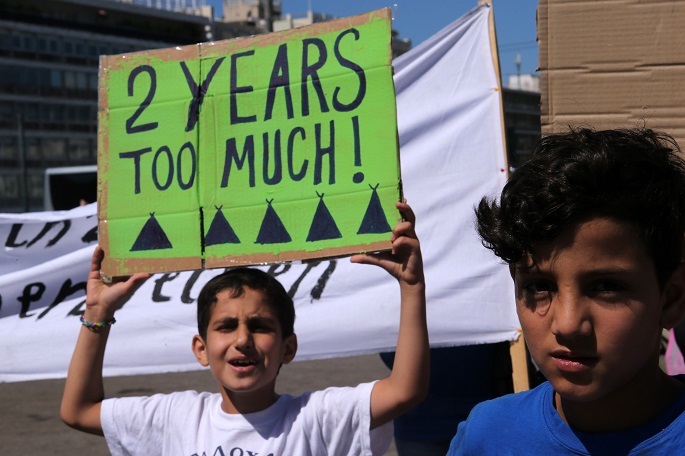Migrants children raised in Italy appeal for citizenship
Published : 14 Oct 2017, 02:01
Updated : 14 Oct 2017, 02:19
Children of migrants born or raised in Italy made a fresh appeal on Italian political forces on Friday, urging them to approve a new citizenship law.
The largest rallies were staged in Rome, Milan, and Florence, with hundreds of foreign-born youths and their families, along with Italians sympathizing with their cause. In the capital, they gathered in the square before the lower house, which is a few meters away from the government building.
Promoters of the event were the associations of second-generation youths, such as "Italiani Senza Cittadinanza" (Italians without citizenship). Unions, environmental groups, and members of Italy's former Radical party joined in, along with many teachers by now used to be multicultural classes.
"I teach arts, and this is an advantage, because you deal with symbols and images, and not just with the meaning of words. This helps the process of integration among pupils," Michele Marinaccio, teacher at the comprehensive school Daniele Manin in Rome, told Xinhua.
"I do believe children who were born or raised here must (have the right to) live here... there should be no obstacles at all," he added.
Despite the joyous atmosphere of the rally, the demonstrators' goal does not seem easy to reach.
In July, the senate deferred the discussion of a bill that would grant citizenship to foreign-born children on the base of their birth and cultural background.
As currently drawn, the draft law would recognize as new Italians at least 800,000 young people already living in the country, according to estimates. The bill was submitted by ruling center-left Democratic Party, and was approved by the lower house in 2015. The green light from the senate is now necessary to make it enter into force.
Yet -- as the campaign for the next elections due in spring 2018 looms -- the issue is becoming more sensitive in the eye of political forces.
The bill is opposed by small centrist Popular Alternative, which is in the coalition cabinet, and by center-right parties -- such as Forza Italia (FI) of former premier Silvio Berlusconi.
Anti-immigration Northern League strongly refuses the idea of a new law, arguing the current legislation (allowing immigrant children to apply for citizenship between the ages of 18 and 19) is enough.
Italy's largest opposition force, anti-establishment Five Star Movement (M5S), would not support the bill, but abstain in case of voting.
Besides, Italian public opinion has been under pressure due to Europe's migration crisis -- which has seen Italy on the frontline for years -- and terrorism alert. As such, the idea of accepting foreign-born people as new citizens has become controversial for some people, no matter if second generations were born here, or spent years studying in Italian schools and universities.
For those still caught in the "limbo", meanwhile, daily life is not always easy. 26-year-old Mohammed Rmaily, currently living in Treviso, came from Morocco when he was three. In the eyes of the law, he is not Italian yet. "My citizenship application has been rejected 3 times," he told Xinhua.
"I was even asked to produce a certificate of no criminal charges pending from my country of origin: yet, unless I was able to commit crimes under the age of 3, such paper is unlikely to exist in Morocco," he explained.
Rmaily was aware the definite approval of the new law might not be easy, but he said he "must be optimistic."
"Italy has become multicultural, it is now made of young people like me, who are called Mohammed, Liu, and Paola... I think politicians must realize the country has changed,"


